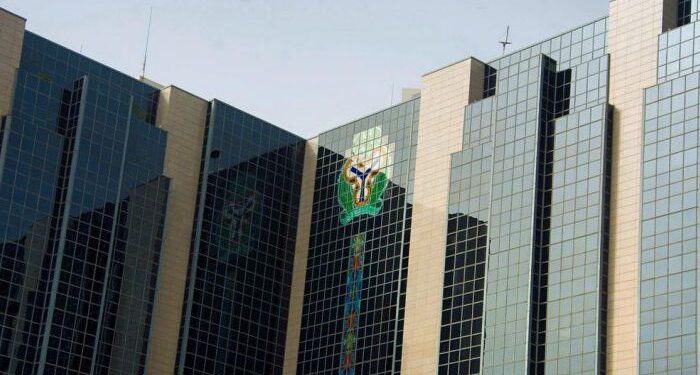The Central Bank of Nigeria (CBN) has commended the nation’s successful removal from the Financial Action Task Force (FATF) grey list, describing the milestone as a major step toward restoring international confidence in Nigeria’s financial system and investment climate. The apex bank said the development is a reflection of Nigeria’s strengthened regulatory framework, improved compliance with global anti-money laundering standards, and enhanced inter-agency coordination in combating financial crimes.
In a statement issued on Monday, the CBN expressed satisfaction with the FATF’s recent decision to delist Nigeria following a rigorous evaluation process that confirmed the country’s substantial progress in addressing identified strategic deficiencies in its anti-money laundering (AML) and counter-terrorism financing (CTF) regimes.

According to the CBN Governor, Dr. Olayemi Cardoso, the exit from the grey list marks “a new chapter for Nigeria’s financial integrity and global standing.” He stated that the decision demonstrates the nation’s commitment to implementing reforms that align with international standards, adding that the move will have a ripple effect on foreign investment inflows, correspondent banking relationships, and overall economic stability.
“The FATF’s decision to remove Nigeria from its grey list is a testament to our unwavering commitment to strengthening the integrity of our financial system. This milestone will further boost investors’ confidence, reduce transaction costs for Nigerian businesses, and enhance our integration into the global financial system,” Cardoso said.
The FATF, an intergovernmental body responsible for setting global standards to combat money laundering, terrorist financing, and proliferation financing, had placed Nigeria on its grey list in 2021 due to identified weaknesses in the country’s AML/CTF framework. Being on the list subjected Nigeria to increased monitoring and scrutiny by international financial institutions, often resulting in delayed transactions, restricted access to international credit, and hesitancy from foreign investors.
However, Nigeria’s delisting followed a two-year review process that included on-site evaluations and technical assessments by the FATF. The decision came after the task force acknowledged the progress made by Nigeria’s regulatory agencies, including the CBN, the Economic and Financial Crimes Commission (EFCC), the Nigerian Financial Intelligence Unit (NFIU), and the Securities and Exchange Commission (SEC), in improving transparency, enforcement, and risk-based supervision.
Cardoso highlighted that Nigeria’s financial institutions had implemented extensive reforms over the past three years, including stricter Know Your Customer (KYC) protocols, enhanced due diligence procedures, and more robust reporting mechanisms for suspicious transactions. He credited these efforts with restoring international trust in Nigeria’s banking and financial systems.
“The CBN has worked closely with domestic and international partners to strengthen compliance measures and mitigate financial crime risks. We remain committed to ensuring that Nigerian financial institutions maintain the highest standards of transparency and accountability,” the governor added.
The CBN’s statement also noted that the delisting would ease foreign exchange inflows, reduce costs associated with compliance-related sanctions, and improve access to global payment systems. Analysts say this development could help stabilize the naira and attract more foreign direct investment (FDI), particularly from financial markets that had been cautious due to Nigeria’s previous grey list status.
Financial experts have also commended the country’s achievement, describing it as a positive signal to the international community. Dr. Bismarck Rewane, an economist and Managing Director of Financial Derivatives Company Limited, said Nigeria’s removal from the grey list would “significantly enhance the credibility of its financial institutions and reduce barriers to international trade and capital flows.”
Similarly, the Director of the NFIU, Modibbo Hamman Tukur, lauded the collaboration among Nigeria’s regulatory and enforcement agencies, saying the nation’s success was the result of sustained commitment to meeting FATF’s technical and operational benchmarks. “This outcome is the product of years of intensive work and inter-agency cooperation. Nigeria has now joined the ranks of compliant nations with strong financial intelligence and supervisory systems,” he stated.
The Minister of Finance and Coordinating Minister of the Economy, Wale Edun, also hailed the achievement, describing it as a major win for Nigeria’s financial sector reforms. He noted that Nigeria’s delisting will not only improve access to international financial markets but also enhance the country’s ability to attract global partnerships and development funding.
“This feat reaffirms our administration’s dedication to transparency, good governance, and financial sector stability. It will open new doors for investment, reduce the cost of cross-border transactions, and strengthen the credibility of our fiscal and monetary policies,” Edun remarked.
Observers note that Nigeria’s removal from the grey list could further encourage multinational corporations, investors, and international lenders who had previously limited their exposure to Nigerian transactions due to compliance risks. Banks and businesses are expected to benefit from faster payment processing, reduced documentation requirements, and improved credit ratings.
The development also aligns with President Bola Ahmed Tinubu’s broader economic reform agenda, which emphasizes restoring investor confidence, curbing corruption, and promoting sustainable financial practices. The presidency, in a statement issued by its media office, described the FATF decision as “a validation of the administration’s ongoing reforms aimed at making Nigeria a safe and attractive destination for investment.”
Global financial observers have described Nigeria’s delisting as one of Africa’s most significant regulatory achievements in recent years. It places the country alongside others such as Morocco and Mauritius, which successfully exited the grey list after demonstrating consistent commitment to FATF standards.
Meanwhile, the CBN said it will continue to collaborate with relevant local and international bodies to ensure that the country does not relapse into non-compliance. The apex bank reaffirmed its readiness to sustain momentum in risk-based supervision, digital financial surveillance, and the adoption of advanced compliance technologies.
As Nigeria celebrates its removal from the FATF grey list, experts believe the challenge now lies in maintaining the progress achieved and preventing regulatory backsliding. Nonetheless, the milestone marks a renewed sense of optimism for Nigeria’s economy, signaling a stronger financial system poised to attract global confidence and investment.
Support InfoStride News' Credible Journalism: Only credible journalism can guarantee a fair, accountable and transparent society, including democracy and government. It involves a lot of efforts and money. We need your support. Click here to Donate
